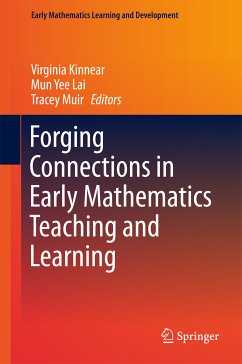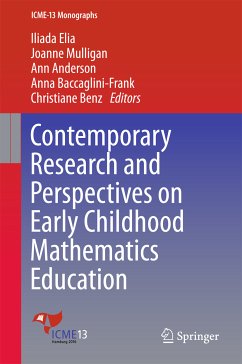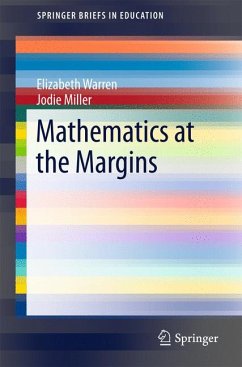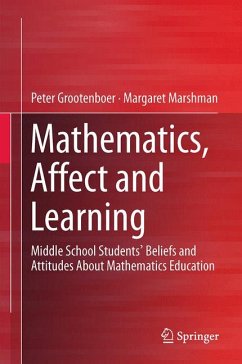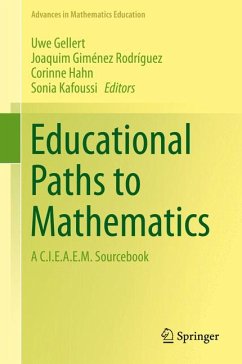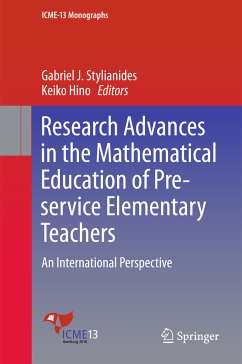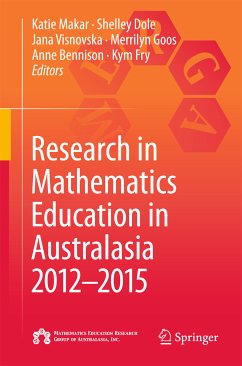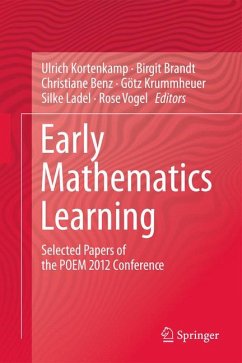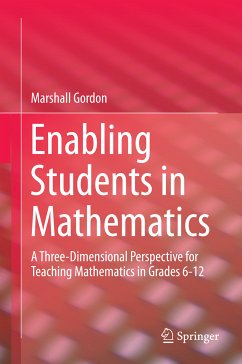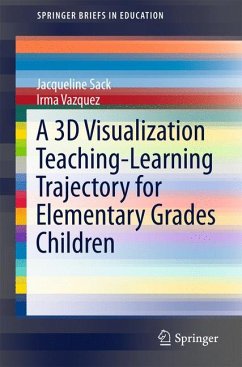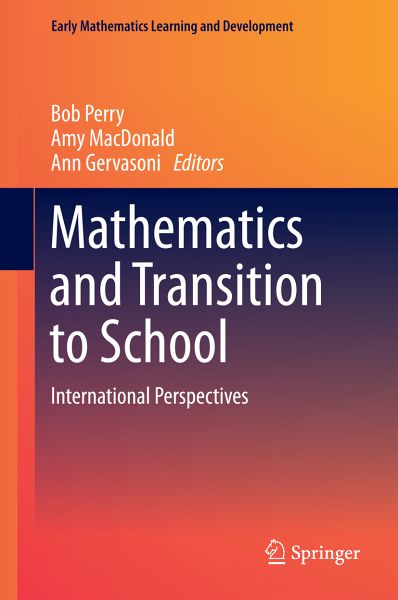
Mathematics and Transition to School (eBook, PDF)
International Perspectives
Redaktion: Perry, Bob; Gervasoni, Ann; Macdonald, Amy
Versandkostenfrei!
Sofort per Download lieferbar
72,95 €
inkl. MwSt.
Weitere Ausgaben:

PAYBACK Punkte
36 °P sammeln!
This edited book brings together for the first time an international collection of work focused on two important aspects of any young child's life - learning mathematics and starting primary or elementary school. The chapters take a variety of perspectives, and integrate these two components in sometimes explicit and sometimes more subtle ways.The key issues and themes explored in this book are:the mathematical and other strengths that all participants in the transition to school bring to this period of a child's life;the opportunities provided by transition to school for young children's math...
This edited book brings together for the first time an international collection of work focused on two important aspects of any young child's life - learning mathematics and starting primary or elementary school. The chapters take a variety of perspectives, and integrate these two components in sometimes explicit and sometimes more subtle ways.
The key issues and themes explored in this book are:
In each chapter, authors reflect on their work in the area of mathematics and transition to school, place that work within the overall context of research in these fields, predict the trajectory of this work in the future, and consider the implications of the work both theoretically and practically.
The key issues and themes explored in this book are:
- the mathematical and other strengths that all participants in the transition to school bring to this period of a child's life;
- the opportunities provided by transition to school for young children's mathematics learning;
- the importance of partnerships among adults, and among adults and children, for effective school transitions and mathematics learning and teaching;
- the critical impact of expectations on their mathematics learning as children start school;
- the importance of providing children with meaningful, challenging and relevant mathematical experiences throughout transition to school;
- the entitlement of children and educators to experience assessment and instructional pedagogies that match the strengths of the learners and the teachers;
- the importance for the aspirations of children, families, communities, educators and educational organisations to be recognised as legitimate and key determinants of actions, experiences and successes in both transition to school and mathematics learning; and
- the belief that young children are powerful mathematics learners who can demonstrate this power as they start school.
In each chapter, authors reflect on their work in the area of mathematics and transition to school, place that work within the overall context of research in these fields, predict the trajectory of this work in the future, and consider the implications of the work both theoretically and practically.
Dieser Download kann aus rechtlichen Gründen nur mit Rechnungsadresse in A, B, BG, CY, CZ, D, DK, EW, E, FIN, F, GR, HR, H, IRL, I, LT, L, LR, M, NL, PL, P, R, S, SLO, SK ausgeliefert werden.




